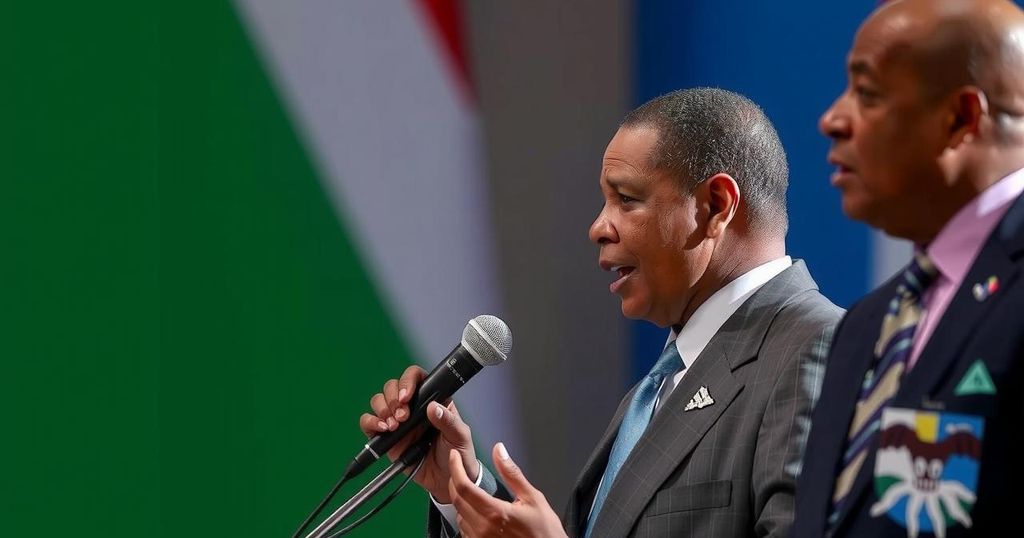Botswana’s ruling party, the Botswana Democratic Party (BDP), has lost its parliamentary majority after 58 years in power, as preliminary results favor the opposition coalition, Umbrella for Democratic Change (UDC). President Mokgweetsi Masisi has conceded defeat, while rising socio-economic challenges contributed to the BDP’s electoral downfall. The election outcomes signal a shift in the political landscape and serve as a warning to long-standing parties in the region.
In a significant political shift, President Mokgweetsi Masisi of Botswana has conceded defeat following the preliminary election results that indicate a substantial loss for his ruling party, the Botswana Democratic Party (BDP), which has governed since the nation gained independence from Britain in 1966. Early results show that the opposition coalition, Umbrella for Democratic Change (UDC), led by Duma Boko, has gained a commanding lead, positioning him to assume the presidency. Analysts attribute the BDP’s downfall to rising socio-economic issues, particularly those affecting the youth, as the country grapples with a downturn in its diamond-dependent economy, leading to increased unemployment, which has surged to 28%. Results from 41 out of 61 constituencies reveal that the UDC has secured 26 parliamentary seats compared to a mere three won by the BDP. In response, President Masisi expressed his respect for the democratic process and congratulated the president-elect, affirming his willingness to support the incoming administration. Gaborone, the capital, witnessed celebrations among opposition supporters, highlighting a historic moment for many citizens disillusioned with extended BDP rule. This election marks a pivotal moment not only for Botswana but also serves as a cautionary tale for long-standing political parties in the region as they face increasing public discontent over economic challenges. The BDP’s defeat follows a broader trend seen in southern Africa, where established parties are encountering electoral challenges amid rising socio-economic concerns.
Botswana, a small southern African nation, has experienced a long period of governance under the Botswana Democratic Party (BDP) since it became independent in 1966. Over the years, the country’s economy has predominantly relied on diamond exports, which have fueled its growth. However, a recent downturn in the global diamond market has led to significant economic repercussions, including a sharp decline in growth and a rise in unemployment rates, which are now at 28%. This economic distress has led to growing dissatisfaction among citizens, particularly the youth, who are increasingly demanding political change and improvements in standard of living. The emergence of the Umbrella for Democratic Change (UDC) as a formidable opposition force illustrates a shift in public sentiment and highlights the consequences of prolonged governance without adequate economic progress.
The recent elections in Botswana represent a watershed moment in the country’s political landscape, bringing an end to a 58-year reign by the Botswana Democratic Party. The opposition coalition’s significant victory is a testament to the populace’s demand for change in light of mounting economic grievances. President Masisi’s concession and the potential for new leadership under the UDC could pave the way for reforms aimed at addressing the challenges facing young constituents and the broader economy. The outcome serves as a critical reminder to ruling parties across southern Africa that sustained political dominance is increasingly threatened by economic failures and public discontent.
Original Source: www.cnn.com






